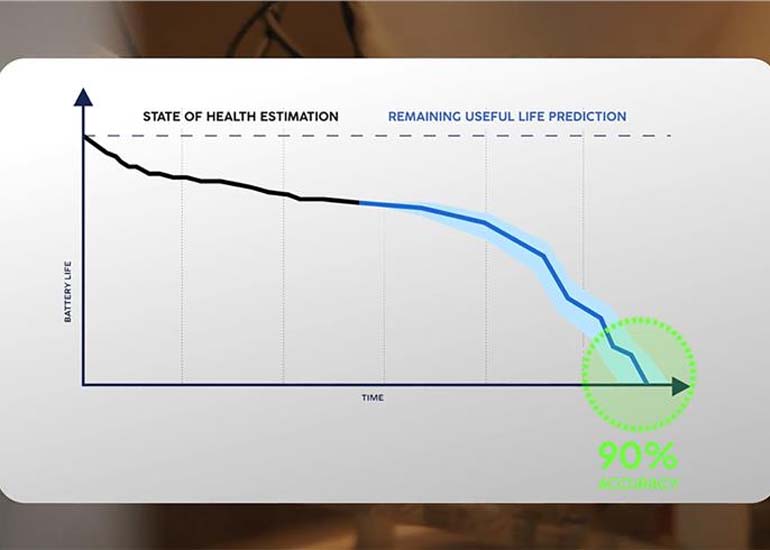Eatron Technologies and WMG, University of Warwick have developed an innovative new approach to estimating accurately an electric vehicle battery’s remaining useful life, helping to unlock additional performance, greater range, and increased levels of safety.
The collaborative project, called VIPER – Validated & Integrated Platform for battery Remaining useful life, was developed with funding from the Faraday Institution. It combines the advanced electrochemical models of WMG with the cloud battery management and integration skills of Eatron to produce estimates of Remaining Useful Life (RUL) that are more than 90% accurate.
Over time, as a battery’s cells age, so do its performance and condition. If this natural deterioration is not constantly watched, it may result in catastrophic cell breakdowns. While some traditional RUL estimations err on the side of caution and erroneously declare perfectly good battery packs useless, others depend on basic voltage-based analytics that may detect complicated failure circumstances, thereby endangering customer safety.
It is feasible to maximize a battery’s performance and lifetime without sacrificing safety by precisely anticipating its RUL.
The solution created by WMG and Eatron may be used over a cloud-based platform or integrated into an automotive-grade battery management system (BMS), which is an idea that is especially tempting for fleet applications.
Umut Genc, CEO of Eatron, said, “Unlocking the hidden capacity of a battery has the potential to increase an EV’s usable range and extend its lifetime. There are benefits for the used EV market, too; as a result of these highly accurate RUL estimates, buyers could have confidence in the condition of a vehicle’s battery and be reassured about its ability to perform for many years to come.”
Dhammika Widanage, Associate Professor, WMG, University of Warwick, said,“The funding from the Faraday Institution has allowed us to bring the project forward by at least a year, and with innovative approaches such as this now in high demand, particularly among automotive OEMs, we’re delighted to be a part of bringing this technology to the market.”
Professor Pam Thomas, CEO, Faraday Institution, said, “Our support for UK-based efforts to develop cost-effective batteries that are efficient, fast charging, and can be safely and sustainably recycled is crucial to achieving the rapid growth in EVs on our roads that will see us deliver on our net-zero targets. The Eatron/WMG collaboration is a great example of the research and innovation elements of the Faraday Battery Challenge working together to deliver impact.”


